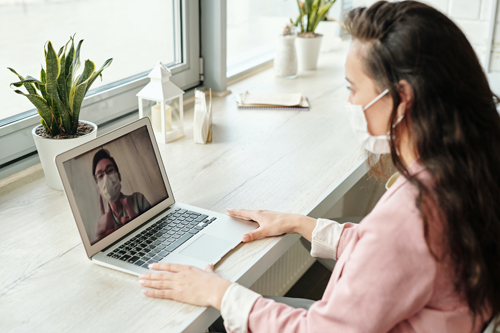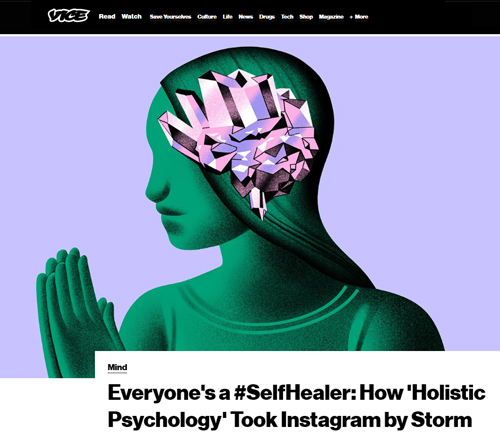
By Liza Horan, Editor
While politicians refine plans to re-open public places and allow small gatherings based on sustained downward trends in coronavirus cases, alarming new aspects of coronavirus are emerging:
- Today the NHS said children are presenting with multi-system inflammation that could be related to Covid-19. The Toxic Shock Syndrome-like conditions are appearing in both those who have and have not tested positive for coronavirus.
- Singapore’s second wave of infection is causing authorities in other countries to be caution about lifting lockdown. In the US, this could be more dangerous than the first wave — the count of which is over 800,000 cases and 45,000 deaths — because it’s anticipated to hit at traditional flu season, according to the Center for Disease Control.
- There’s no evidence that having had Covid-19 provides immunity from catching it again, the World Health Organization said on Friday.
The UK is honoring the frontline workers, like the nurses and doctors who have died from Covid-19 while serving, with a minute of silence on Tuesday at 11 a.m. The weekly ‘clap for our carers’ ritual on Thursdays at 8 p.m. continues.
Worldwide cases of Covid-19 have exceeded 2.8 million and nearly 200,000 deaths have been attributed to the virus, yet authorities say the numbers aren’t totally accurate because testing is not widely available and some tests are not reliable. Figures in the UK are 20,319 deaths and nearly 150,000 cases as of yesterday.
Financial support for mind-body-spirit professionals
This sector is dominated by self-employed workers and small businesses, and while many products and services can be delivered online — from streamed group classes and one-on-one healing sessions — those that trade from physical locations are particularly challenged. The UK government now has two financial support schemes that can support those working in the mind-body-spirit disciplines, which are dominated by self-employed workers and small businesses:
- The Self-Employed Income Support Scheme provides up to 80% of pay for three months was launched last month, though payments won’t be made until June.
- Small businesses can apply interest-free micro loans of up to 25% of annual turnover, it was announced today. The government will pay interest for the first year.
The Federation of Holistic Therapists (FHT), one of two volunteer registries in the UK, that’s busy supporting members through this lockdown period. As a membership organisation, their website answers questions specific to insurance and their own programming, but they also offer all practitioners tips on how to engage clients even though you cannot meet in person.
And, the FHT advises the public on how they can take advantage of healing therapies at home like reflexology, aromatherapy, yoga, meditation, face massage, among others.
South African healers marginalised: Ghana’s government has been working with indigenous healers to mitigate Covid-19, but healers in South Africa say they are shut out: “Government’s reluctance to consult widely with African indigenous spiritualists, medicine specialists and healers (and the condescension of Western healthcare practitioners towards our sector) during the fight against the pandemic is regretful, since there is a great deal of research to support our relevance to millions of people,” says this open appeal published in City Press. “The main point is not to attack either Western, Eastern, African or other indigenous medical practices, but create a more inclusive approach towards holistic health and healing. As citizens, it is our democratic right to openly raise issues of concern and suggest a negotiated way forward.”

Investors back ‘shrooms: British start-up Compass Pathways has raised $80 million from investors to broaden research into psilocybin, the psychoactive compound in “magic mushrooms,” to treat clinical depression.
Prince Charles’ holistic birthday: For his 71st birthday yesterday, Camilla is said to have given Prince Charles a rejuvenation stay in India at SOUKYA, a renowned health retreat offering yoga and ayuverdic, homeopathic and naturopathic treatments amid lush grounds with a 30-acre organic farm. The resort is is a favourite of actress Emma Thompson and Archbishop Tutu.
Self-healing goes viral…and extreme? The #SelfHealer movement has gone viral on social media. But it is dangerously throwing shade on science-backed modalities?
Katie Way explores this in her VICE story, “Everyone’s a #SelfHealer: How ‘Holistic Psychology’ Took Instagram by Storm.” She focuses on the phenomenon of Dr. Nicole LePera — who is @the.holistic.psychologist with 2.1 million Instagram followers — and how she eschews traditional, evidence-based methods.
“What sets LePera’s account apart from the crowd—that is, apart from the majority of mental health resources offered by accredited mental healthcare professionals—is her choice to specifically take aim at the mental health establishment,” Way writes. “[She] regularly posts images and captions explicitly rejecting the tools of traditional psychotherapy.” LePera goes as far as rejecting talk therapy to help people deal with trauma and questioning the value of the Diagnostic and Statistical Manual of Mental Disorders (DSM), which is the world’s authoritative guide to mental health diagnoses and disorders.

Way spoke to cognitive-behavioral therapist and licensed psychologist Marla Deibler, who said, “These critiques can be dangerous, especially when the alternative presented is unscientific in nature … From where I am in the field, my colleagues and I feel very good about what we do, and we practice scientifically validated treatment protocols that show pretty good efficacy in terms of helping people improve their lives when they’re suffering.
“It’s irresponsible for licensed practitioners to put out there information that is not backed by science.”
This is a comprehensive story that looks at both sides: The personal experiences of people who say LePera’s bite-sized posts clearly communicate a truth that resonates with them and suggests the inner work that’s part of healing; and the professional establishment’s approach of relying on scientific research-based methods.
It’s a common paradox across mind-body-spirit disciplines: Science vs. personal experience.
Acupuncture has been practiced for millennia but only recently been proven effective. Same with energy healing, which is only now beginning to be accepted by the mainstream medical establishment. Science has proven that the placebo effect is real, which goes to show the power of the mind.
Just because something can’t be proven in a lab doesn’t mean it’s ineffectual. And there are lots of ways into healing. Someone who is very conservative may dismiss alternative therapies categorically as “woo-woo” yet see their nightly prayers materialise. Would that person be surprised to learn that he or she may have been practicing meditation and The Law of Attraction in those moments? Semantics.
“As empowering the prospect of seizing the means of healing might be, LePera’s teachings do have certain stark drawbacks,” Way writes. “A therapist who uses her social media platform to promote her anti-psychotherapy-establishment movement is radical. But radical doesn’t necessarily mean better, especially when that radical therapist’s healing techniques part from the realm of actual medical science.”
Perhaps this story is a reminder that scientific evidence and personal experience are compatible, not mutually exclusive.

Comments